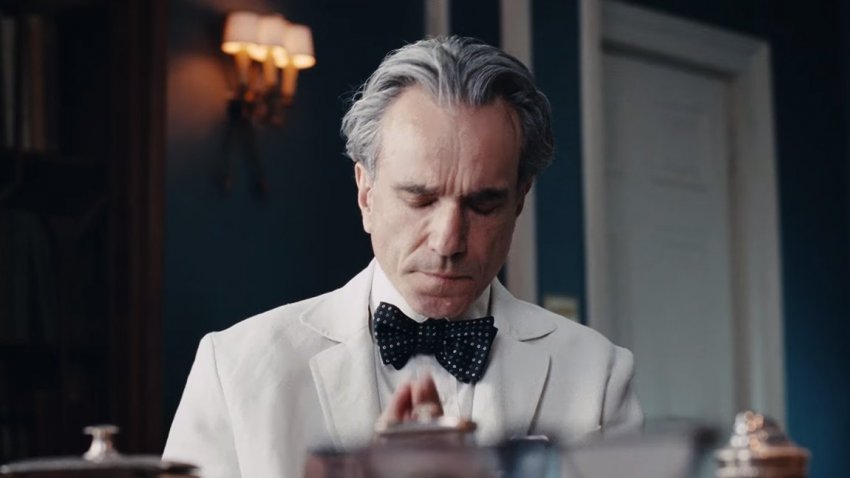
Sometimes a filmmaker creates their work and that work is labeled in one particular genre. Or, their filmography is associated with certain types of films – say drama, for example – that they would often be categorized in that realm as well.
Therefore, here are 10 dramas that are actually comedies. You can base this off of the director’s comments, pace, and mood, or just the scenes that are flat-out hysterical.
1. Pulp Fiction (1994) – Quentin Tarantino
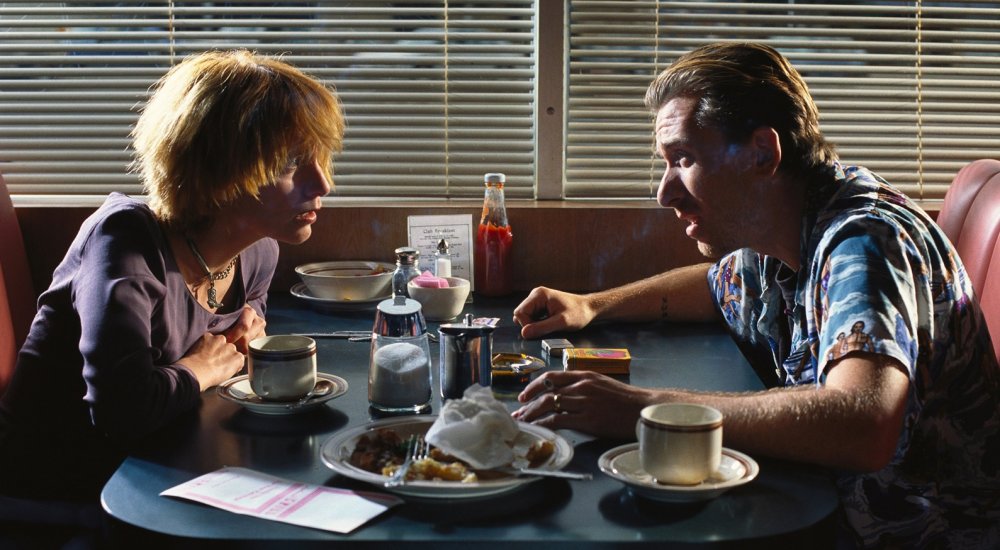
A writer-director who doesn’t fit into any universe or genre because he makes up his own has stated that his masterpiece is very much a comedy. From the premise that consists of hit men, a gangster’s wife, and local robbers, it sounds like a crime drama, of which it has been classified.
However, take the scenes of Winnfield’s change to become a preacher, accidentally shooting Marvin in the face, or Mia’s overdose, and you’ll see that much of this is very very dark comedy. Tarantino knew he was making a film that he could smile all the way through and the audience simply jumped on his train.
The humor between the characters, especially in the dialogue, make this film difficult to laugh at. Of course, there are many moments where you laugh, stop, laugh again, and stop again due to violence, shock, or suspense, but doesn’t comedy have tension all the time?
So while it’s technically a crime drama by label, if you look closer, you’ll see it’s real a film filled with dark humor between engaging characters over the course of a few days in Los Angeles in the 1990s.
2. The Exterminating Angel (1962) – Luis Buñuel
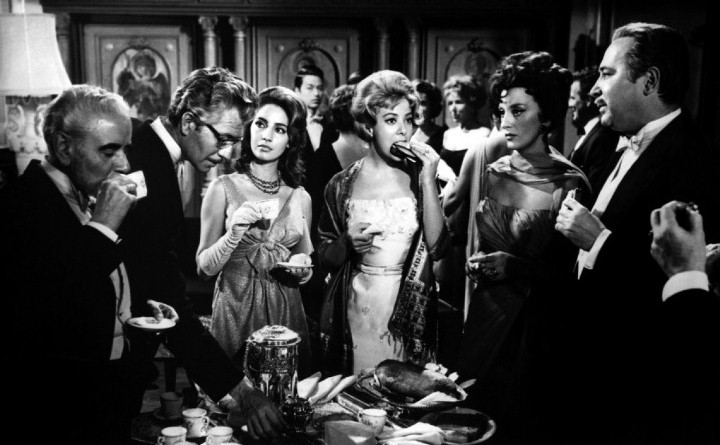
“But why don’t they just leave?” is the question of the film and every character plays it so straight that it’s hysterical for us, and certainly not for them. After Buñuel’s controversial yet successful “Viridiana,” he wanted to attack the upper-class and bourgeois society in the world.
Taking place in Mexico City and mostly in one trapped house, the guests aren’t able to leave the party or house with no real viable explanation. As things progress, the situations get quite looney and very screwball-like with attempts to escape the house. Whether bashing the pipes for drinking water or literally being bombarded by lambs, the guests never catch a break.
Exploring his style and content with surrealism, the viewer always tries to stay one step ahead or figure out the imagery and sounds at any given time. However, as the film progresses, it’s hard not to laugh out loud at these aristocrats and the situations they are in. Maybe perhaps that what Buñuel wanted – common audience members laughing at the hated bourgeoisie. Looks like he was laughing as well and thus, how can it not be a comedy?
3. Full Metal Jacket (1987) – Stanley Kubrick
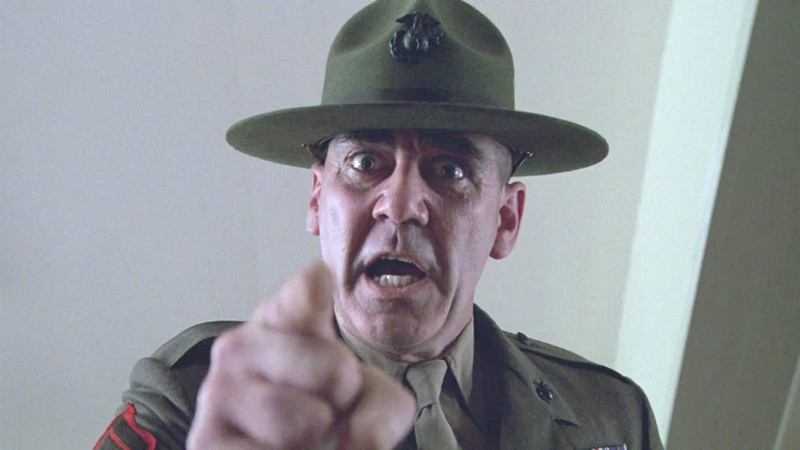
A director who’s no stranger to comedy after helming “Dr. Strangelove” 23 years prior, Kubrick returns but this time in the Vietnam era, splitting his narrative between training and the front lines. Definitely disguised as a war film and military drama, Kubrick obsesses over the comedic moments from boot camp to the satire of war.
Take any line or mannerism delivered by R. Lee Ermey as Gunnery Sergeant Hartman, and it is nearly impossible not to laugh, but to the likes of the recruits of Modine, D’Onofrio, and Howard. All of the recruits try not to laugh as well but that’s what he is trying to do, and we are just observantly along for the ride.
The transition to the Vietnam portion has no lack of action, intrigue, and tragedy, but with the mood of the interactions with prostitutes, the duality of man conversation, and arguing amongst the Marines, Kubrick allows comedy to come to fruition because that’s what Americans want. They are surrounded by death and decay, so the Marines have fun while Kubrick never loses his sight on the bigger picture.
Kubrick knew exactly what he was doing by incorporating realist comedy in a war film, but maybe the ‘Mickey Mouse March’ at the end sums it up in the best way possible.
4. Phantom Thread (2017) – Paul Thomas Anderson

How can a Paul Thomas Anderson film starring Daniel Day-Lewis be a comedy? Well, it’s the character of Day-Lewis’ Woodcock, the romantic comedy-like narrative, and the gothic manner with Vicky Krieps’ Alma that make this 1950’s period fashion piece a comedy.
Several filmmakers and critics have argued that this film is indeed a romantic comedy. Sure, it is also a gothic romance, but take several scenes. For example, Alma eating loudly at all her meals to the dismay of Woodcock; the audience becomes accustomed to his reactions and they are priceless. Or Woodcock waiting around to be poisoned or involved with Alma after he casts her away. It’s a back-and-forth relationship and the audience can’t help chuckling.
Though it fits into the dramatic realm and the likes of Anderson’s filmography, it can be an expansion to a darker “Punch-Drunk Love” version where Anderson explores these comedic situations with dark humor and in a more sinister setting. Regardless, the film can be labeled a comedy due to the constant riff of its two leads, even if we don’t know what game they are playing.
5. Il Sorpasso (1962) – Dino Risi
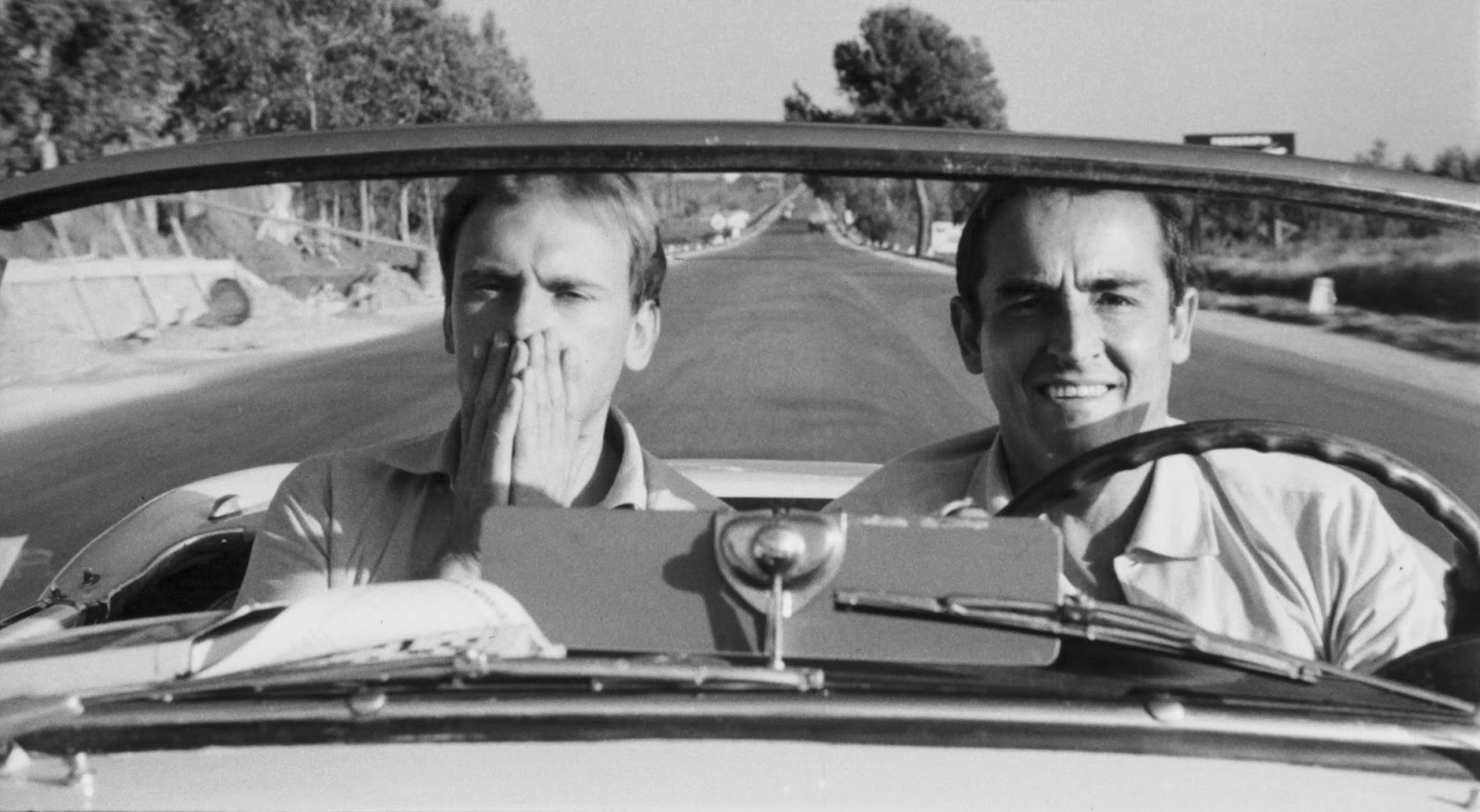
It may be fair to argue that this is a straight comedy coming from Dino Risi, one of the masters of Italian comedy. But if you examine the relationship between Vittorio Gassman and Jean-Louis Trintignant, the deep pathos and heavy anguish of their lives comes bursting through all the way to the tragic end.
Of course, you have a buddy road trip comedy dealing with parties, women, and booze, but take the beginning of the film. We see a wandering, lost, and naive Trintignant aimlessly walking through an empty Rome, almost reminiscent of an Antonioni film. It takes a while before the plot gets going. It’s all story for about 30 minutes and we feel sad, lonely, and isolated with Trintignant. On the other hand, Gassman steals the comedy show – that is, until a stark revelation later on the trip sets his life into a tizzy.
The film is definitely one of the peaks of Italian comedy from the 1960s with its soundtrack, parties, and overall fun mood, but deep down, it’s about two broken souls trying to distract themselves from the important issues in life, or in this case, the easy life.